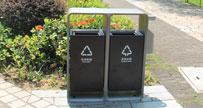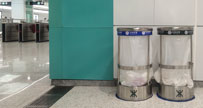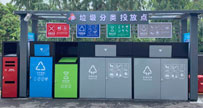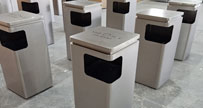The waste collecting companies will bid in due time and apply the unified tool and charging platform. Beijing municipal government will give subsidies to its operation and encourage people to do garbage sorting.垃圾處理公司會在規(guī)定時(shí)間內(nèi)投標(biāo),申請統(tǒng)一的工具和收費(fèi)平臺。北京市政府會給垃圾處理公司提供補(bǔ)貼,并鼓勵人們做垃圾分類。
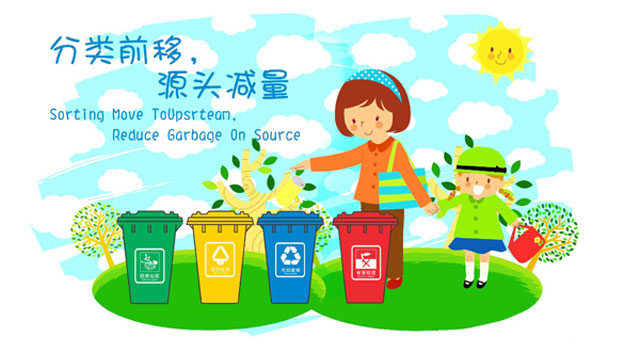
在上面的報(bào)道中,garbage sorting就是“垃圾分類”。我們經(jīng)常可以在居民小區(qū)內(nèi)看見三種assorted dustbin / garbage containers(分類垃圾筒),分別是kitchen garbage(廚余垃圾)、recoverable garbage(可回收垃圾)和unrecoverable garbage(不可回收垃圾)。每天garbage collector(垃圾清理工)會定期來做garbage collection(垃圾回收)。接下來就是送往garbage disposal plant(垃圾處理場)進(jìn)行g(shù)arbage disposal(垃圾處理)了。有時(shí)我們走在路上還會看見garbage truck(垃圾車)經(jīng)過。
.jpg)
垃圾有多種說法,除了garbage外,還有rubbish,waste,refuse以及trash都可以用來表示垃圾。Rubbish具體指明為干廢料,如報(bào)紙、木料、罐頭等。Garbage通常指濕的或有機(jī)物質(zhì),如剩余食物、腐肉雜物。Refuse、trash、waste是指上面兩種廢品,加上工業(yè)廢品、建造廢料、街道垃圾。Refuse亦指所有固體廢料、陰溝殘余,甚至于遺棄的車輛、冰箱。而我們隨手丟棄的紙屑、果皮等雜物則可以用litter來表示。
來源欣方圳廠家垃圾桶網(wǎng):http://m.yuchensuye.com(轉(zhuǎn)載請保留)


